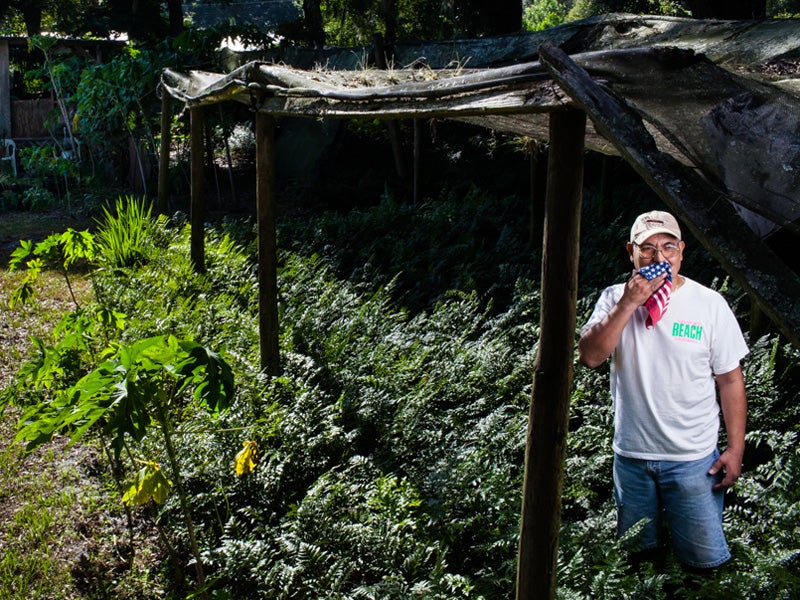Broken System: The Current State of Pesticides Regulations in 30 Minutes
Managing attorney Patti Goldman discusses how we got in the poisonous pesticide mess and what Earthjustice has been doing to correct it over the past decade.

This page was published 10 years ago. Find the latest on Earthjustice’s work.
Watch dogging the pesticide industry is laborious, important work. Patti Goldman, managing attorney of Earthjustice’s Northwest office has been at it for nearly three decades. In a recent radio show appearance (below), she deftly explains the challenges of dealing with a complicated regulatory system, the years of dedicated legal and advocacy work by Earthjustice and others to strengthen these regulations, and the reasons why harmful pesticides are still widely used in agriculture today. Take less than 30 minutes to learn why farmworkers aren’t adequately protected from pesticides, and neither are consumers.
Patti spoke to Diane Horn, producer and host of the Sustainability Segment of the Mind Over Matters show on KEXP, 90.3 FM in Seattle.
Some highlights of the conversation [edited for brevity and clarity]:
“One of the other weaknesses in our pesticide law is that it doesn’t have a citizen’s suit, which allows the public to sue the polluter and stop the pollution. We have it in the Clean Water Act. We have it in the Endangered Species Act. And the reason is that the government may not have the political will to enforce against a key economic player. The pesticide law is unique among modern environmental laws in not having a citizen’s suit.”
“Back in 2001, the EPA looked at children crawling around on the carpets and putting their hands in their mouths and decided that chlorpyrifos was just far too dangerous and all of the home uses had to go. That was an important and big step. But it ignored the rural children. It ignored the exposure that children face in the rural areas from pesticide drift and from take home exposures on the parents’ clothing. So it allowed all of those exposures to continue, and we have been trying ever since to get the EPA to focus on those rural kids.”
“If the EPA were to regulate to prevent brain impacts to children, this pesticide (chlorpyrifos) would be gone and that’s what we think should happen.”
“For years, environmental advocates would not challenge the EPA’s decisions under the pesticide law because of the weak standard and because it was so cumbersome. But in recent years, we’ve decided that we’ve got to because it’s all we’ve got. At some point, it is more the moral suasion that this is not acceptable to expose people to these types of risks.”
“I think what has changed is the EPA is starting to see the farmworkers more and to realize there are justice implications for exposing people to these kinds of risks. We often represent United Farm Workers or farmworker unions, and for the EPA and the decision makers to speak with and hear from them about what it is like to face these risks, risks that our industrial workers rarely face, that has started to persuade decision makers to take more action to protect farmworkers.”
Established in 1987, Earthjustice's Northwest Regional Office has been at the forefront of many of the most significant legal decisions safeguarding the Pacific Northwest’s imperiled species, ancient forests, and waterways.